Sustainable Swaps
Try Swapping This For That
Celebrating Earth Day is great, but at Boulder Clean we believe that our beautiful planet should be celebrated every single day, not just once a year. To inspire you to do as much good for our planet when and where you can, we’ve got some easy, sustainable swaps you can make in your home that will help keep our planet happy and healthy for generations to come!
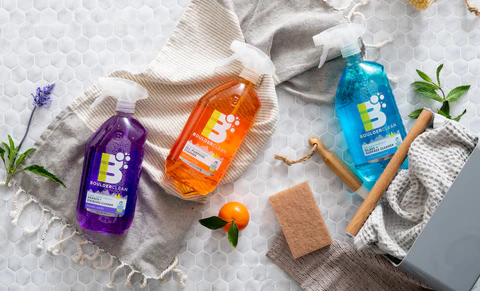
Instead of Chemical-Filled Cleaners Use Boulder Clean
When you use cleaning products that are chemically-laden, not only are you causing potential harm to your home and your health, but chances are you’re causing harm to the environment. Take the guesswork out of going green by using eco-friendly cleaning supplies. At Boulder Clean, our mission is making clean, cleaner. When it comes to the stuff we use every day in our homes—we don’t compromise. That’s why we always say “no” to: toxic chemicals, animal ingredients and overpowering fragrances. Our products are formulated only with the safest possible functional ingredients— the most powerful plant-based ingredients our beautiful planet has to offer.
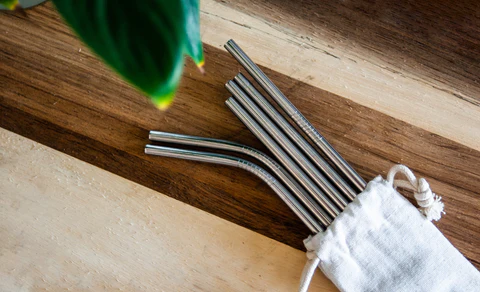
Instead of Plastic Straws Use Reusable Straws
Simply Eco suggests that toxic chemicals and fumes are released whenever plastics are manufactured and any of these harmful by-products ultimately end up polluting the land, air, and water. Additionally, through improper disposal, a straw made of plastic can end up in a lake or ocean, causing devastating effects on ecosystems and marine life. Studies suggest that the United States alone, uses 500 million straws every day, and unfortunately most of those end up in our oceans, polluting the water and killing marine life. When you use reusable straws, the majority of these negative effects can be completely mitigated.
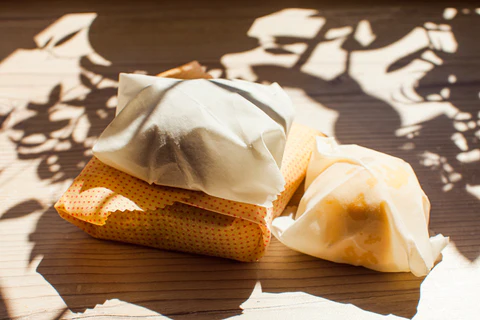
Instead of Plastic Wrap Use Beeswax Wrap
Like other non-recyclables, plastic food wrap ends up in landfills at best, and as litter on the ground and in the sea at worst. In landfills it will sit, not degrade and possibly leach its chemicals for years. Elsewhere it will do the same, while being a risk to wildlife or fish who may get caught up in it or eat it. Beeswax wraps ultimately cost less than plastic wraps and can keep your food fresher for longer, plus they can be washed and reused time and time again!
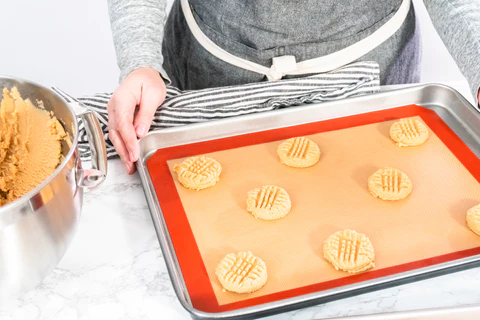
Instead of Parchment Paper Use Silicone Mats
Parchment paper is ideal, especially when it comes to baking and other jobs in the kitchen. While parchment paper is made from paper, it is treated with an acid during production, which is what gives it it’s high heat resistance, then it is coated with a nonstick material, typically silicone, which is how it allows your tasty treats to come right off. All of these chemicals and treatments end up making your parchment paper, non-recyclable and non-compostable—aka more garbage that will end up in a landfill! The best alternative to parchment paper is silicone mats, that work just as good (if not better) than parchment paper, and are reusable!
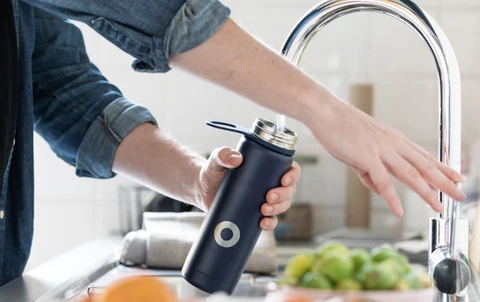
Instead of Single Use Water Bottles Use Reusable Water Bottles
One million plastic bottles are bought around the world every minute. As of 2021, more than half a trillion plastic bottles will be sold annually. At best, less than 1/3 of all plastic bottles will be recycled. The rest, generally wind up in landfills and our oceans. If you haven’t already made the switch to a reusable water bottle, now is the time! Reusable water bottles, will not only save you money but by using a reusable water bottle, you’ll reduce the amount of waste that ends up in landfills and our oceans and you’ll reduce your carbon footprint!
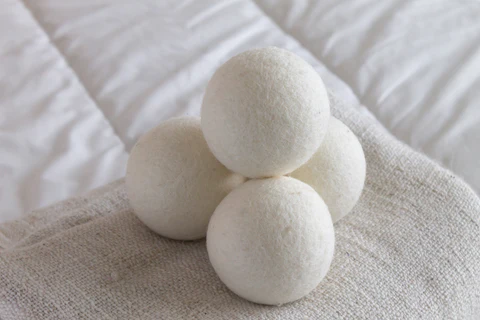
Instead of Dryer Sheets Use Dryer Balls
On a surface level, dryer sheets are great because they soften your clothes and can pack a powerful fragrance that helps your laundry smell fresher for longer. However, general speaking dyer sheets can be not-so great for your health. Many dryer sheets on the market can contain chemicals that could potentially cause irritation and harm to your body. From an environmental standpoint, dryer sheets aren’t needed to keep clothes clean. They can get caught in your lint trap and other parts of your dyer meaning it won’t work as well, and you’ll need to use more energy to dry your clothes. As single-use products, they produce needless amounts of waste and can potentially emit harmful chemicals into the air. Dryer balls are a great alternative (especially when you add a few drops of essential oils to them!), they separate clothes better than dryer sheets, allowing hot air to circulate more evenly and efficiently, and help reduce drying time—thus lowering your carbon footprint!
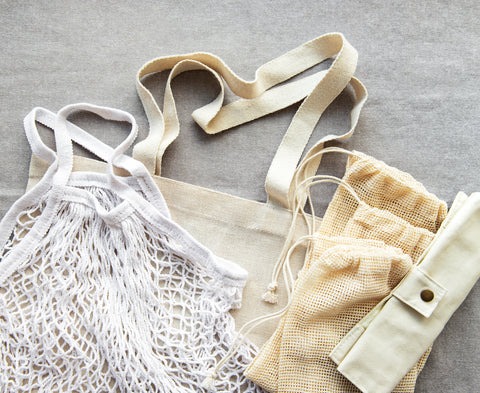
Instead of Plastic Bags Use Reusable Bags
Plastic bags start out as fossil fuels and end up as deadly waste in landfills and the ocean. Americans use 100 billion plastic bags a year, which require 12 million barrels of oil to manufacture. It takes 500 (or more) years for a plastic bag to degrade in a landfill. Unfortunately the bags don’t break down completely but instead photo-degrade, becoming microplastics that absorb toxins and continue to pollute the environment. Opting for reusable bags can greatly help the environment. Life happens! So, of you ever forget to bring your reusable bags to the store or make a surprise stop, simple ask for paper bags instead of plastic.
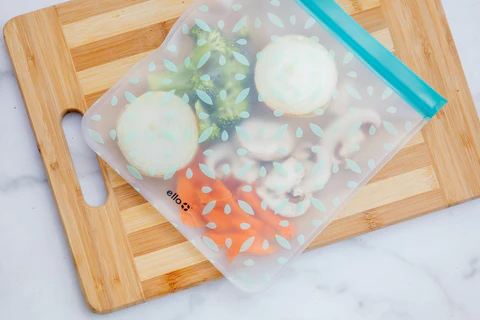
Instead of Plastic Baggies Use Silicone Baggies
Like the plastic grocery bags you might use from the store, plastic sandwich baggies are just harmful to the environment. 100,000 marine animals are killed by plastic bags annually. Skip the single use baggies, and save our oceans by swapping to silicone baggies. They keep your food just as fresh, and you’re able to reuse them hundreds, if not thousands of times over—plus if you ask us, they’re much cuter!
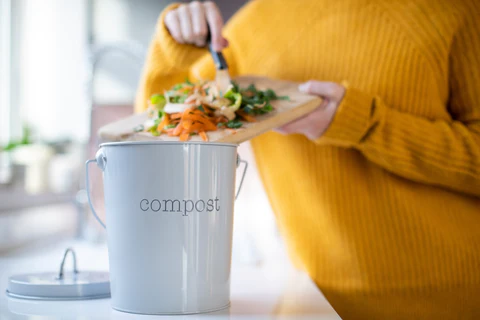
Instead of Food Scraps in the Trash Use A Composting Bin
If you regularly throw out scraps that can be composted, it might be time to invest in a composting bin. Composting can save money, resources and reduce your environmental impact. According to the Green Action Center, “Composting keeps a valuable resource out of the landfill, wastes less water since compost helps with moisture retention, reduces civic costs for waste collection and thereby reduces fuel use, and even extends the life of landfills.” It is suggested that residential waste is 40% compostable materials!
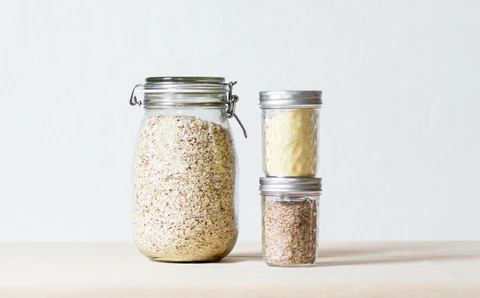
Instead of Buying Foods In Plastic Packaging Use Your Own Containers and Buy Bulk
While it is still a relatively new concept, many cities are starting to see sustainable or zero-waste stores popping up. The idea is to reduce single use plastics and cut back on your waste. If you have a zero-waste store near by, a local grocery store, or farmers market, using your reusable bags and baggies stock up on pastas, flour, bread, sugar, eggs, etc. without the packaging! Once you’re home you can store them in glass jars or beeswax paper!
